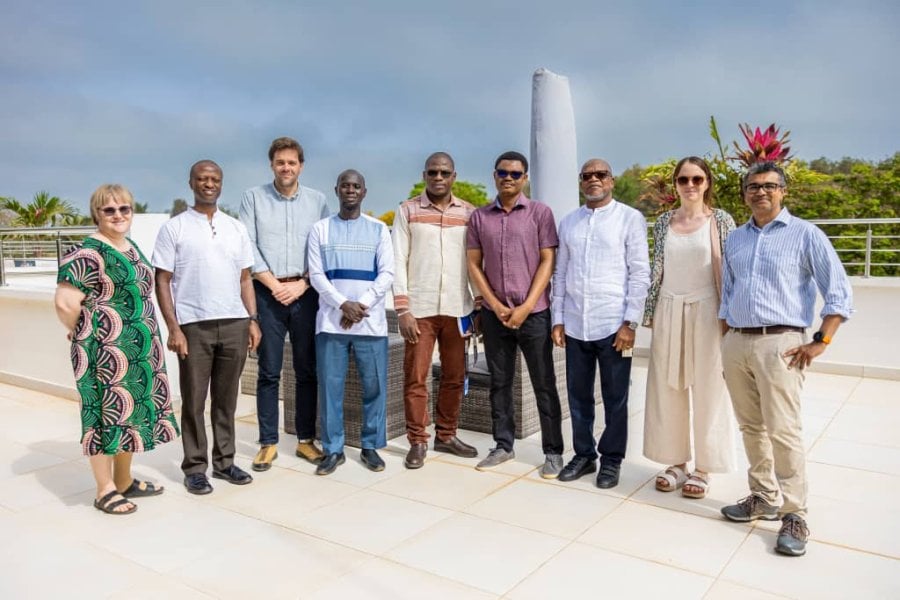
In the first CGCC Annual Symposium of its kind, the two-day hybrid event provided an opportunity to learn about the huge variety of cardiometabolic research taking place across six participating institutions in Europe and Africa, with the view of facilitating increased collaboration, peer-to-peer learning, and potential funding opportunities for future research.
Formally hosted by the Medical Research Council Unit in The Gambia at the London School of Hygiene & Tropical Medicine (MRCG at LSHTM), the symposium saw online participation from the following research units and institutions: LSHTM in London, MRC Unit Uganda, Malawi Epidemiology and Intervention Research Unit (MEIRU), The Health Research Unit in Zimbabwe (THRU ZIM), and Kenya Medical Research Institute (KEMRI). Researchers based at each site interested in cardiometabolic disease attended in-person at their respective site, connecting with other hubs via Zoom.
Opening the symposium on the first day, LSHTM Director Professor Liam Smeeth said: “NCDs are a global burden that can only be addressed through global collaboration. It is wonderful to see so many partners coming together today to explore how we can work together to better understand, prevent, and manage cardiometabolic diseases. Partnerships are about doing more together than we can do apart.”
Speakers from each of the research units and institutions highlighted ongoing research across many disciplines within cardiometabolic disease, from implementation studies to clinical epidemiology and mechanistic studies. Central to the discussions across both days of the symposium was the importance of community engagement within cardiometabolic research, to ensure that affected communities are both willing and able to access the treatment being proposed.
Dr Modou Jobe, Clinical Fellow at MRCG and Co-Director of CGCC, said: “Our team works closely with the NCD programme at the Ministry of Health of The Gambia, and with the Regional Health Directorate in Mansa Konko, as well as with the primary health care structures in the Kiang West District. This is to ensure that we continue to conduct research that is relevant to the health needs of the people of The Gambia and to ensure that our findings are easily translated into policy and practice.”
For those who were unable to attend the symposium, the recordings from day one and day two are available to view online.
If you would like to explore potential collaborations with any of the research hubs who presented during the symposium, you can email globalcc@lshtm.ac.uk to begin the process.
If you enjoyed this article and would like to build a career in global health, we offer a range of MSc programmes covering health and data, infectious and tropical diseases, population health, and public health and policy.
Available on campus or online, including flexible study that works around your work and home life, be part of a global community at the UK's no.1 public health university.
